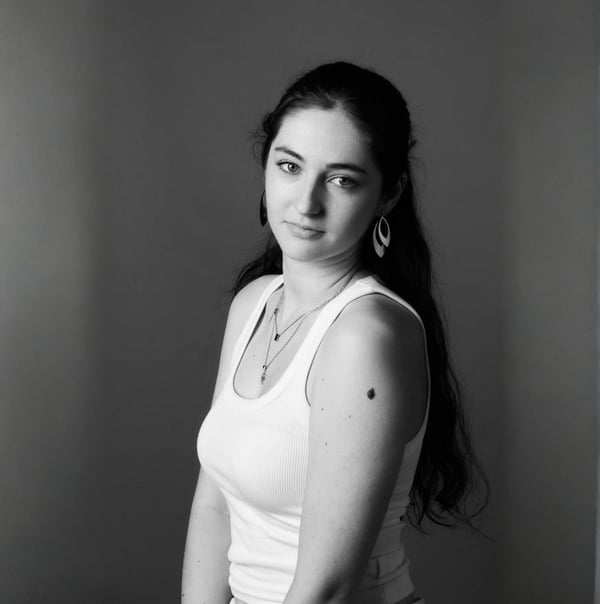AI Agent for Fashion: Smarter Business & Design Tools
Table of Contents
- What Is an AI Agent for Fashion?
- AI in Fashion Design Workflows
- AI Agents in Fashion Business Operations
- How AI Agents Improve the Retail Experience
- Sustainability Benefits of AI Fashion Agents
- Modelia: Your AI Fashion Agent
- Summary Table: AI Agent for Fashion Benefits
- Final Thoughts
- FAQ: AI Agent for Fashion
Artificial intelligence is moving from theory to practice in fashion. What once sounded futuristic, like having a digital assistant that helps with design, production and retail decisions, is now a reality. An AI agent for fashion is like having a personal partner who understands your goals, processes large amounts of data in seconds, and offers actionable solutions.
Instead of spending weeks testing fabrics, analyzing trends, or forecasting sales, AI can do this work while designers and entrepreneurs focus on creativity and strategy. From design studios to e-commerce platforms, AI agents are quietly becoming a cornerstone of the industry.
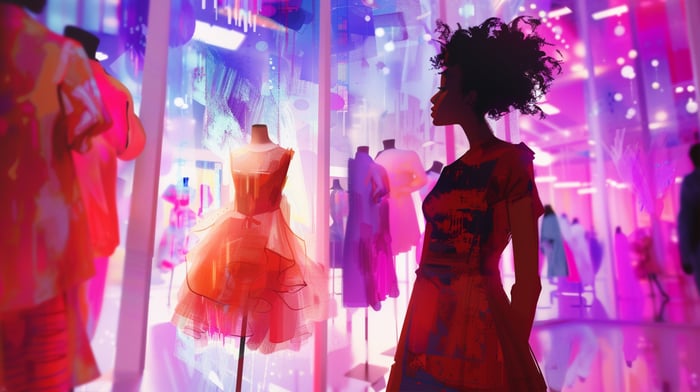
What Is an AI Agent for Fashion?
Essentially, an AI agent for fashion is a system designed to think and act on behalf of users. Unlike simple tools that simply execute a command, AI agents can:
- Receive instructions or objectives (e.g., "create a mood board for pastel spring dresses" or "forecast demand for winter coats").
- Process large data sets, from trend reports to consumer behavior.
- Generate both creative (such as sketches or mockups) and analytical (such as sales predictions) outputs.
- Continuously learn and improve, refining results over time.
In the fashion industry, this means an AI agent can act as a creative partner, business analyst, and virtual stylist all at once. For brands, this reduces trial and error, cuts costs, and accelerates the process from idea to market.
AI in Fashion Design Workflows
Design is the heart of the fashion industry, but it’s often the most time-consuming part of the process. Traditionally, creating new collections required hand-drawn sketches, physical prototypes and endless rounds of corrections.
With an AI agent integrated into design workflows, the process transforms:
Concept Generation: AI can instantly turn text prompts into sketches or 3D mockups. For example, typing “minimalist linen summer dress with open back” could generate a dozen visual concepts in seconds.
Variations: Instead of drawing each design by hand, AI can create multiple options, different colors, fabrics, cuts, at scale. A single dress sketch could instantly become ten outfits.
Digital Refinement: Designers can fine-tune details like stitching, draping, or proportions with AI tools. This reduces the gap between inspiration and final concept.
Prototyping: With platforms like Clo3D or Modelia, designs can be simulated on realistic digital models, avoiding the need for costly samples in early stages.
The result is faster, more experimental, and more sustainable fashion design, where creators have more freedom to test ideas without the usual resource constraints.
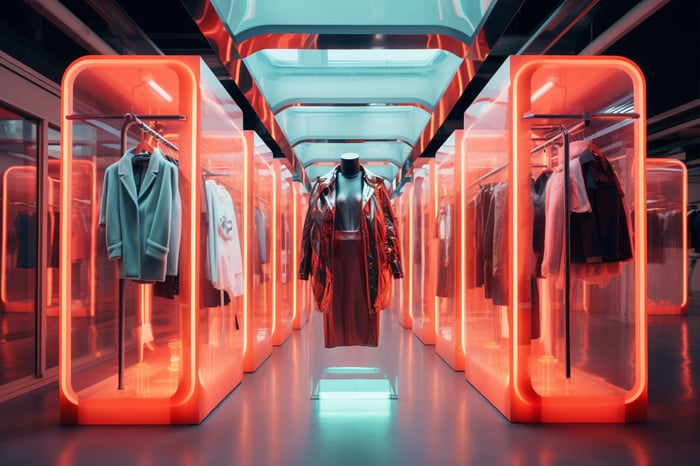
AI Agents in Fashion Business Operations
Fashion isn’t just about creativity, it’s also about numbers. Brands constantly face challenges like overproduction, pricing, and supply chain inefficiencies. An AI agent in business operations brings data-driven intelligence to the table:
Inventory Management: AI forecasts demand so brands produce just enough, avoiding costly overstock or shortages.
Trend Prediction: By analyzing social media, search queries, and sales data, AI agents can detect what’s trending before it becomes mainstream.
Pricing Strategies: Instead of relying on intuition, AI adjusts prices dynamically based on demand, season, and competition.
Automated Admin Tasks: From generating product descriptions to tagging items in online stores, AI agents remove repetitive work.
For small businesses, this means more time to focus on growth, while larger brands gain efficiency at scale. The key advantage? Fashion companies can make decisions based on insights, not guesswork.
How AI Agents Improve the Retail Experience
Shopping today is hybrid, split between physical stores, e-commerce, and even metaverse-style experiences. Consumers expect personalized, seamless, and fast interactions, and AI agents are making that possible.
Here’s how they transform the retail journey:
Virtual Stylists: AI can recommend full outfits based on a shopper’s preferences, browsing history, or even body measurements.
AI-Powered Chats: Instead of generic chatbots, AI agents act as shopping assistants, suggesting the right size or color.
Visual Search: Customers can upload a photo (say, a celebrity outfit), and AI finds similar products in seconds.
Dynamic Recommendations: Product pages powered by AI don’t just show “related items”, they suggest looks that align with each customer’s unique taste.
This kind of personalization builds loyalty. Customers feel understood and are more likely to return to brands that offer smart, intuitive shopping experiences.
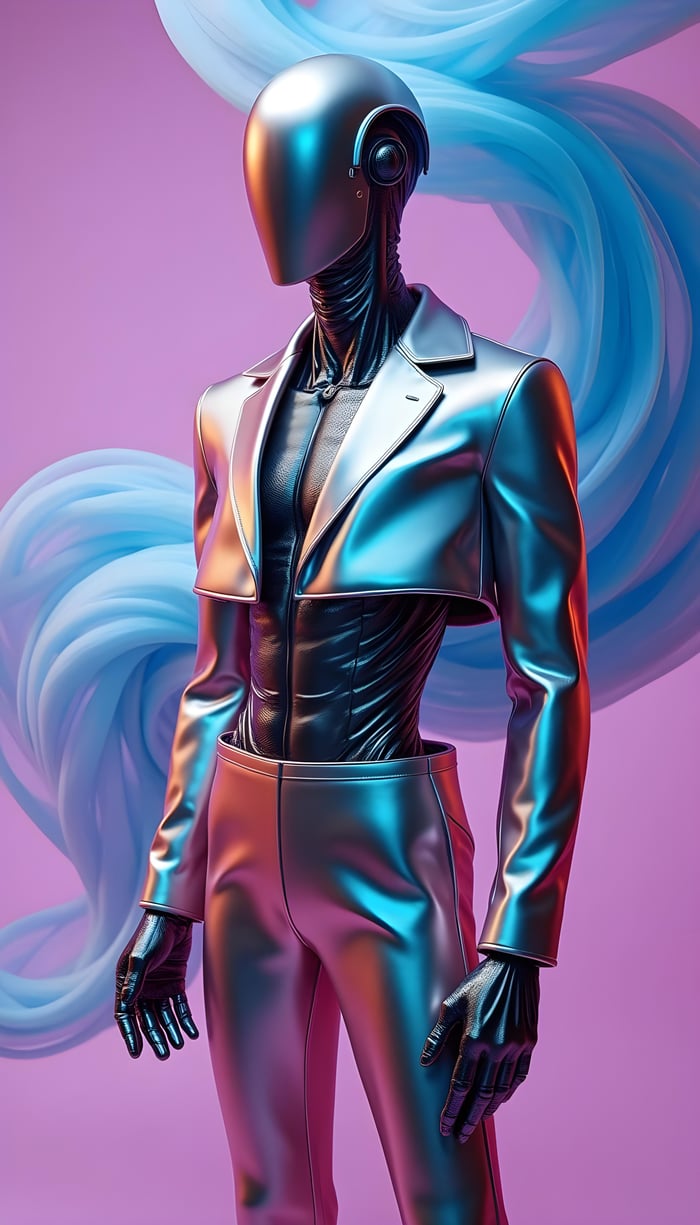
Sustainability Benefits of AI Fashion Agents
Sustainability is no longer optional, it’s expected by consumers and regulators alike. The fashion industry is infamous for waste, from unsold inventory to fabric scraps. AI agents play a major role in making fashion greener:
Reducing Overproduction: With precise demand forecasting, brands produce what they can actually sell.
Digital Sampling: AI simulations mean fewer physical prototypes, saving textiles, dyes, and energy.
Smarter Supply Chains: AI agents can optimize transportation routes, cutting down emissions.
Custom-Made Options: By supporting on-demand production, AI reduces excess stock and promotes personalized shopping.
For eco-conscious brands, AI isn’t just a tool, it’s part of their sustainability strategy. It allows them to balance profitability with responsibility.
Modelia: Your AI Fashion Agent
At Modelia, our goal is to make AI accessible and useful for fashion professionals. Instead of being just another tool, Modelia works like an AI fashion agent that supports your creative and business needs.
Here’s what it can do:
Generate AI Models: Skip expensive photoshoots, create realistic digital humans to showcase clothing in different styles, sizes, and demographics.
Outfit Visualization: Instantly try garments in new colors, fabrics, or combinations, helping designers and retailers expand options without physical samples.
E-Commerce Ready Visuals: Prepare product photos, campaigns, and catalog images in minutes.
Design Prototyping: Bring sketches to life with realistic digital mockups, ready for presentation or production discussions.
Modelia gives brands of all sizes the power to work smarter, save resources, and move from idea to execution faster than ever before.
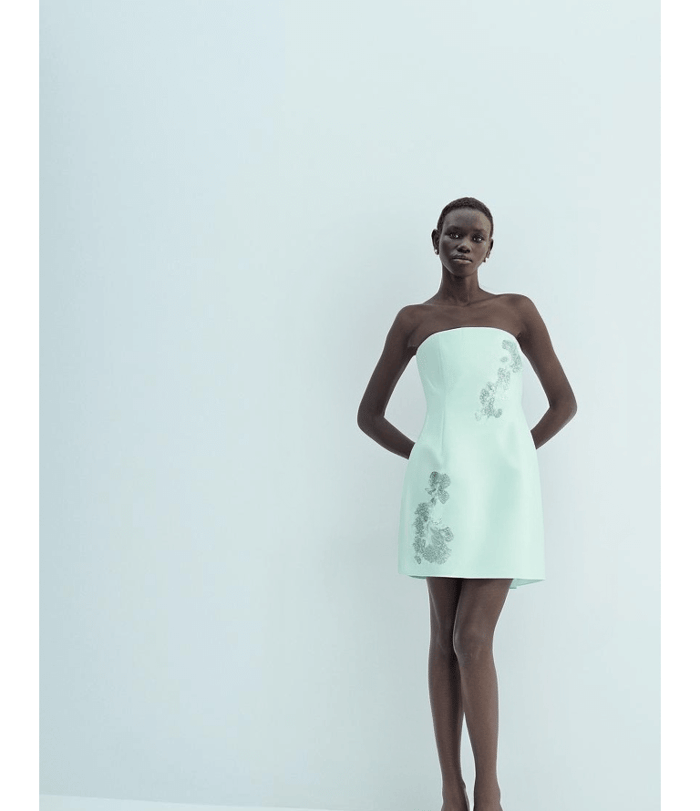
Summary Table: AI Agent for Fashion Benefits
Area of Fashion | What AI Agents Do | Why It Matters |
|---|---|---|
Design | Generate sketches, create variations, simulate prototypes | Faster, more creative workflows |
Retail | Personalized assistants, product recommendations, visual search | Better shopping experience |
Business Ops | Forecast demand, optimize pricing, automate tasks | Reduced costs, smarter decisions |
Sustainability | Digital prototyping, demand forecasting, on-demand production | Less waste, eco-friendly processes |
Final Thoughts
The fashion industry is constantly evolving, and today, technology plays a crucial role in shaping creativity, business decisions, and consumer experiences. An AI agent for fashion is no longer just a futuristic idea, it is a practical tool that empowers brands and designers to work smarter and more efficiently. By integrating AI in fashion business, companies can streamline operations, forecast demand, optimize pricing, and create personalized experiences for shoppers. For designers, these digital fashion assistants act as collaborative partners, helping with concept generation, outfit variations, and virtual prototypes.
From generating realistic AI models for fashion to producing marketing visuals and supporting AI fashion solutions across design and retail, AI agents provide the insights and automation that modern fashion businesses need to thrive. They reduce manual work, minimize waste, and allow brands to focus on creativity while maintaining a strong visual identity.
In short, an AI agent for fashion bridges the gap between innovation and execution. Whether you are a small business leveraging AI in fashion business, a designer experimenting with new concepts, or a retailer exploring digital fashion assistants to enhance the shopping experience, AI offers scalable, sustainable, and intelligent solutions. These AI fashion solutions are transforming how fashion brands operate, turning complex workflows into streamlined processes, accelerating design cycles, and ultimately delivering smarter, faster, and more personalized experiences to customers worldwide.
The future of fashion is not just digital, it’s powered by AI, guided by creativity, and optimized by intelligent AI agents for fashion, making it possible to innovate at scale while staying aligned with trends, sustainability, and consumer expectations.

FAQ: AI Agent for Fashion
What is an AI agent for fashion?
An AI agent for fashion is a digital assistant powered by artificial intelligence that helps brands, retailers, or consumers with tasks like product recommendations, styling advice, inventory management, and trend forecasting.
How can fashion brands use AI agents?
Brands can use AI agents to offer personalized shopping experiences, automate customer support, analyze consumer preferences, optimize inventory, and predict upcoming fashion trends.
Can AI agents help customers choose outfits?
Yes, AI agents can provide personalized outfit suggestions based on user preferences, body type, past purchases, or current trends, making online shopping more convenient and engaging.
What are the benefits of using an AI agent in fashion?
AI agents improve efficiency by automating repetitive tasks, enhance customer experience through personalization, reduce returns with better product recommendations, and provide insights that inform design and marketing strategies.
How would you rate this article:
Related Articles
- How to Dress for Your Body Type: Complete Style Guide
- How to Design a Fashion Logo That Stands Out
- The Most Followed Virtual Influencers in 2025
- 10 Best Artificial Intelligence Marketing Software for Small business
- How to Stay Stylish on a Budget: Fashion Shopping Tips for the Savvy Shopper
- How to Use an Outfit Visualizer for Fashion Inspiration
- Sketch to AI Art: How Designers Are Creating Digitally
- AI Person Generator: Generate Unique and Realistic People with AI
- How Fashion Brands Can Succeed with Influencer Marketing
- Date Night Outfit Ideas That Always Work


